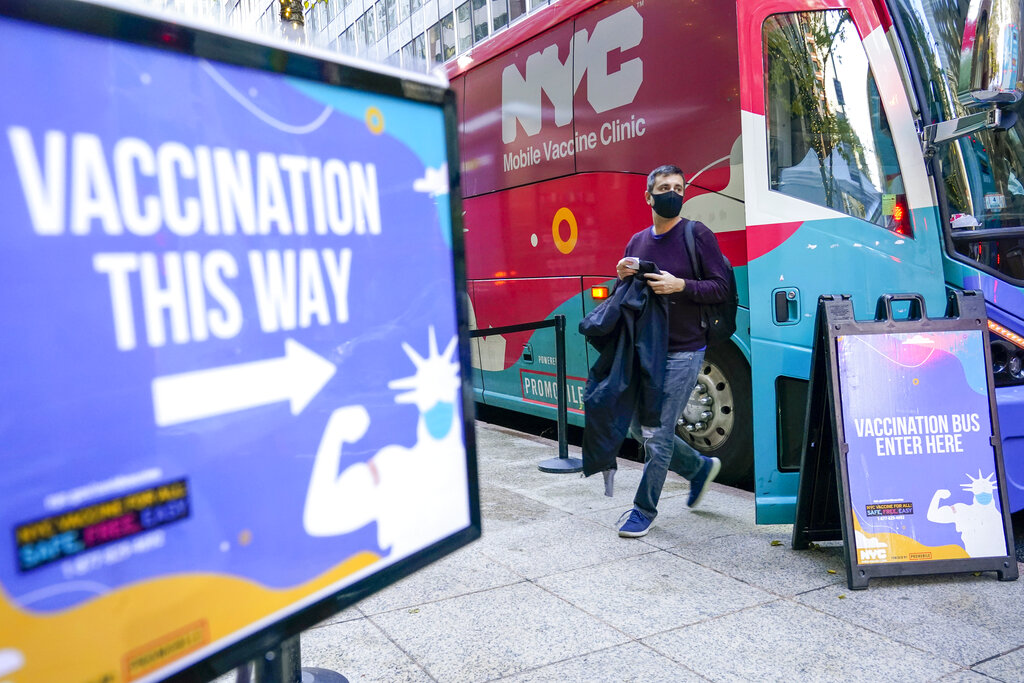Could Omicron Cause Less Severe COVID Infections? There’s Optimism, But Also Worry

Some health officials are calling it a hopeful sign that the first people known to be infected with the omicron variant have had mild symptoms of COVID-19, although they warned it is still far too early to understand the implications of the newest coronavirus variant of interest.
A report issued over the weekend by the South African Medical Research Council said most of the patients in a Pretoria hospital who are believed to be infected with omicron weren’t hospitalized because they had COVID-19 but for another medical reason.
Of the 42 patients, about 70% of them have no trouble breathing and do not need oxygen support.
“This is a picture that has not been seen in previous waves,” the report said; even at the start of previous waves, most hospitalized COVID patients have had trouble breathing. Still, “more time is required to fully answer the questions about the severity of COVID-19 caused by the new omicron variant.”
California state epidemiologist Dr. Erica Pan seemed to be heartened by that preliminary assessment.
“It is very early, and patient population is young, but encouraging early data suggesting less (oxygen needed for patients) and less severity,” Pan tweeted.
Dr. Anthony Fauci, President Joe Biden’s chief medical adviser for the pandemic, called the South Africa report “encouraging” in an interview with CNN, but added that “we have really got to be careful before we make any determinations that it is less severe, or it really doesn’t cause any severe illness comparable to delta.”
Maria Van Kerkhove, an epidemiologist with the World Health Organization, agreed that it’s still too early to tell whether omicron will result in more mild COVID-19 symptoms.
“Even if it is a mild disease, it’s important that we still act fast now to take measures to control its spread, because even if we have a large number of cases that are mild, some of those individuals will need hospitalizations … go into ICU, and some people will die,” she said on CBS. “More cases can mean more hospitalizations, more hospitalizations could mean more deaths and we don’t want to see that happen on top of an already difficult situation with delta circulating globally.”
One of the biggest questions for the U.S. is what will happen as omicron goes up against the delta variant, which currently comprises 99.9% of analyzed coronavirus samples nationwide. It’s unclear whether delta will remain the dominant strain in the U.S. or if omicron will be able to displace it.
“What we don’t yet know is how transmissible it will be, how well our vaccines will work, whether it will lead to more severe disease,” Dr. Rochelle Walensky, the director of the U.S. Centers for Disease Control and Prevention, told ABC.
Concerns remain about how transmissible omicron may be. Trevor Bedford of the Fred Hutchinson Cancer Research Center, an infectious-disease researcher who has been studying coronavirus spread, said the omicron transmission rate could render this variant “a much larger threat in terms of case counts than delta.”
“The size of this wave will depend largely on the susceptible population. Although current data cannot fully address this, I suspect there is decent immune evasion, and some individuals protected from infection by delta will be susceptible to omicron,” Bedford tweeted.
In California, local health officials and scientists said the best way to prepare for omicron is for unvaccinated people to get their shots and for vaccinated people to get their booster shots, if they are eligible to do so. Even if it turns out that the vaccines are less effective against omicron, having a higher level of antibodies — particularly following a booster shot — could still provide decent protection against severe illness from COVID-19, Fauci has said.
Getting vaccinated and boosted is “the most effective tool we have to protect you from severe illness,” said Dr. Regina Chinsio-Kwong, a deputy health officer for Orange County, California.
To Read The Full Story
Are you already a subscriber?
Click "Sign In" to log in!

Become a Web Subscriber
Click “Subscribe” below to begin the process of becoming a new subscriber.

Become a Print + Web Subscriber
Click “Subscribe” below to begin the process of becoming a new subscriber.

Renew Print + Web Subscription
Click “Renew Subscription” below to begin the process of renewing your subscription.



